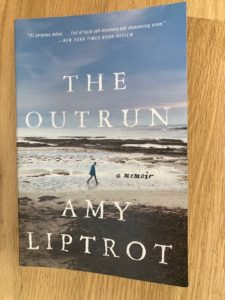A friend casually left this for me to read—when I finally dove in I was shocked at the clarity and energy of Amy Liptrot’s writing. What a gem of a book. The revelations of her new found sobriety are woven into her explorations of the rough and wild Orkney islands. 
Category: Uncategorized
Don’t write for free!

Would you ask a plumber to fix your toilet for free, just for the honor of coming into your house and being able to tell his friends that he worked for you? No. So why do so many people feel it’s fine to ask writers to write content for free? It’s not OK, and writers need to ask for, and receive, payment for their work.
One of my favorite writers, Naomi Hirahara, just posed a great FB post about why she does not write for free. She quotes another writer, Alexander Chee, who has written about this too. Both make such great points.
Chee says that a discussion about money must take place between the editor and the writer. And no matter what is offered, the writer must ask for more. No one should be embarrassed or insecure about talking about the terms of payment. Writers need to earn a living, and editors need to not take writers for granted, ever.
Another point that distresses me badly writers are getting paid less these days than in decades past. It’s just inexcusable. When budgets got slashed in publishing, fees for writers were the first to be reduced or cut. And except for rare instances, they have not been raised again. And that’s another reason why all writers (and I’m lecturing myself, here) need to ask for more money — not just for ourselves, but for all writers.
The need for happy endings

This is one of my dogs — her name is Lulu. She was found on Sunset Boulevard by three kind-hearted people who were on their way to dinner. They coaxed her off the street and told me later that she was completely black with dirt, and terrified. The deep scar on her snout and cuts on the sides of her gums indicated that her mouth had been wired shut for years.
By the time I met her, these kind people had given her a bath, had her seen by a vet and bought her a collar and an ID tag. My family and I fell in love with her and she’s been part of our family for about three years.
She’s got the good life at our house and is most beloved.
Such a good end of the story… and it’s a story I tell again and again, almost compulsively. Whenever asked about her by neighbors or other people we encounter on walks, I’m overly-eager to tell it.
I think it’s because Lulu’s story is so happy — and everyone craves happy endings. Craves them!
Happy endings help me to keep a toe-hold on hope, to remember that there is a lot of good in the world, in spite of appearances. But happy endings can become forced and false quickly, and the need for happy endings can cause story-tellers to leave out meaningful details of a character or a plot.
What I liked about the movie “Three Billboards…” was that right away the plot seemed to identify the good and bad characters, and then slowly those roles dissolved. The good ones were not so good, and the bad ones were not so bad. And… there was no real happy ending. The book Atonement by Ian McEwan totally played with the readers’ desire for a happy ending, which propelled the drama.
I like noir books and films. I also like sarcasm when it’s matched with good wit. To leave out darkness is a mistake for writers, a death knell for novels.
Yet, happy endings, when they really do happen, can seem miraculous, especially when I’ve decided the world really has gone to hell.
So, just to let you know: It’s 3 p.m. on a warm afternoon in Los Angeles, and Lulu is asleep on our back porch, partly in the sunshine, partly in the shade. Her little stomach rises and falls with her naptime breathing. She looks pretty happy.
Alone with the heart howling
 Have you heard of Jack Gilbert? An unusual, soulful poet who died in 2012. Look at his face—he looks like he’s suffered but still has a nice smile. I believe it’s good idea to start the day by reading poetry like his, rather than self help books, for one important Ninety-nine point nine percent of self help books are horribly written.
Have you heard of Jack Gilbert? An unusual, soulful poet who died in 2012. Look at his face—he looks like he’s suffered but still has a nice smile. I believe it’s good idea to start the day by reading poetry like his, rather than self help books, for one important Ninety-nine point nine percent of self help books are horribly written.
Perfectly fine advice about meditating twice a day, for instance, will be wiped out by trite sentences, incorrect grammar and limited vocabulary.
Wouldn’t we all be better off reading a few pages of great literature or even a bleak but well-written poem?
You have to admire this one by Jack Gilbert entitled “Between Aging and Old,” even if it is a bit dark:
I wake up like a stray dog
belonging to no one.
Cold, cold, and the rain.
Friendships outgrown or ruined.
And love, dear God, the women
I have loved now only names
remembered: dead, lost, or old.
Mildness more and more the danger.
Living among rocks and weeds
to guard against wisdom.
Alone with the heart howling
and refusing to let it feed on
mere affection. Lying in the dark,
singing about the intractable
kinds of happiness.
Somehow this poem opens my mind and creates the chance that I will have a good day—the true magic of poetry.

